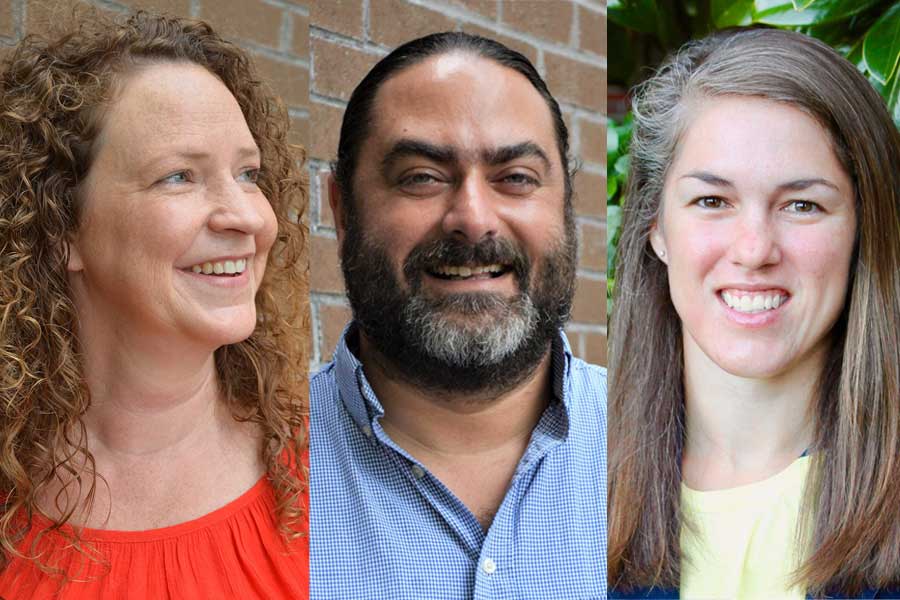
Researchers at the Institute for Justice Research and Development (IJRD) at the Florida State University College of Social Work have teamed up with the John E. Polk Correctional Facility and Christian HELP Employment and Resource Center to treat trauma among individuals releasing from jail in Seminole County.
“Experiences of trauma are nearly universal among incarcerated men and women and unaddressed trauma symptoms can contribute to the reason that an individual is incarcerated in a local jail,” said Carrie Pettus-Davis, associate professor of social work and director of IJRD.
Pettus-Davis; Associate Professor of Social Work and Associate Director of IJRD Stephen Tripodi; and Assistant Professor of Social Work and Assistant Director of IJRD Tanya Renn lead the institute’s faculty research team.
Much existing research focuses exclusively on individuals incarcerated in state or federal prisons; less is known about the experiences of individuals held in jails because of the short-term nature of most jail stays and other factors which make conducting research in jails difficult. What little research exists suggests that rates of trauma are amplified among the jail population.
Jails across the country struggle to find ways to best respond to the symptoms and consequences of lifetime traumatic experiences, such as mental health problems, impulsivity and aggression. Affected individuals often also have few social supports and struggle with emotional regulation. These factors decrease community stability and contribute to the cycle of incarceration, release and reincarceration.
Leadership at the Seminole County jail has been searching for data-driven solutions to improve outcomes for the individuals who contact their facility.
“Sheriff (Dennis) Lemma and the members at the Seminole County Sheriff’s Office are committed to assisting inmates returning to our community,” said Laura Bedard, chief of corrections at the Seminole County Sheriff’s Office. “This partnership is a step in the right direction to improve their chances of success upon re-entry into the community. We must always be forward-thinking with programs and opportunities like this.”
In concert with jail administrators, the researchers will pilot test an innovative, evidence-driven trauma intervention titled “Skills Training on Affective and Interpersonal Regulation” or STAIR. STAIR is a flexible, short-term intervention designed to address the unique needs of individuals who have experienced trauma.
Group-based work with incarcerated adults in the jail begins during custody and continues in the community after an individual is released. Groups in the community are being led by a trauma-informed interventionist at IJRD. In addition, volunteers are running support groups for study participants at the Christian HELP Employment and Resource Center, an organization with a mission to help individuals seek and gain employment, become self-sufficient and create a plan for their own wellness.
“We have provided coaching to individuals while in jail, and after their release, for the past two years,” said Vickie Martin, executive director of Christian HELP. “We are excited to partner with IJRD and offer another level of support for ‘returning citizens’ through community support groups.”
For more information on the study and the Institute for Justice Research and Development, visit ijrd.csw.fsu.edu or contact Vickie Martin of Christian HELP at vickie@christianhelp.org.




